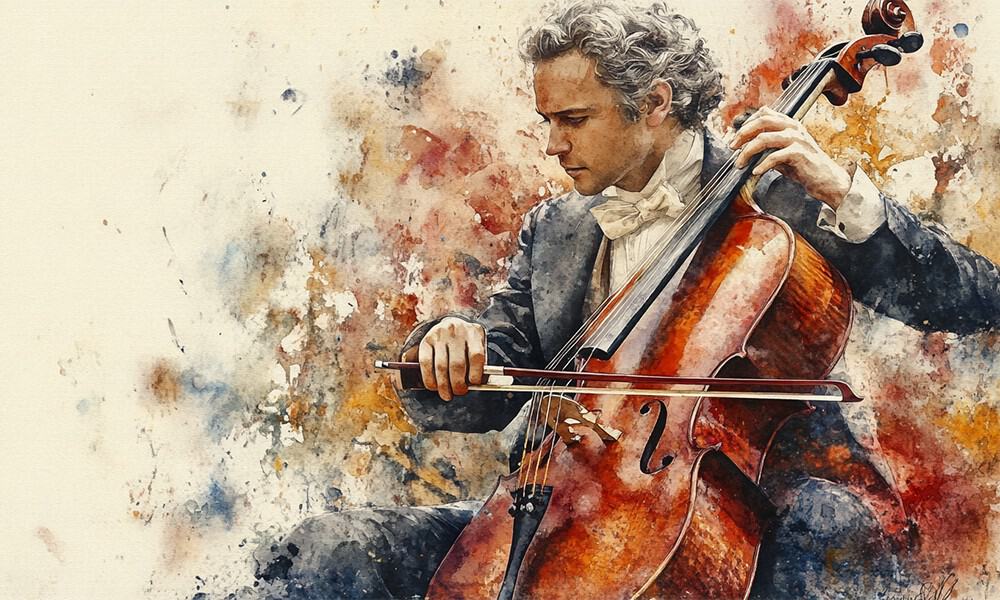First, a disclaimer: I haven’t witnessed many, if any, live performances by musicians of Lorin Hollander’s caliber in my lifetime. But the fact remains that the virtuoso pianist’s performance of J.S. Bach’s Chaconne in D minor – with his left hand only – was one of the most remarkable things I’ve ever seen on a stage.
The original is a highly demanding and equally inspiring work for solo violin, but as Hollander told a rapt audience at the National Theater last week, Johannes Brahms later arranged it for piano, choosing to use only one hand to “give the pianist the same Everest to climb as the violinist.”Hollander, a New Yorker who made his Carnegie Hall debut at the ripe old age of 11, proceeded to show off Bach’s painfully beautiful masterpiece with jaw-dropping aplomb, all with his right hand sitting calmly on the bench beside him. It was like watching Michael Jordan work his magic with one arm tied behind his back, or Julia Child cook without butter.
But the best part about Hollander’s week-long visit to Costa Rica, which included a master class for young musicians Aug. 24 and culminated with a full performance at the National Theater Aug. 31, was that his talent wasn’t really the point. At least, it wasn’t the only point. He came to San José to share not only his music, but also his message: that music education is essential if we are to prepare children for a rapidly changing and often scary world.
“Studying music is not only about – is probably rarely about – creating professional musicians,” he told his audience of educators and others at his Aug. 28 lecture on music and brain development. “It is about creating truly human human beings … Music has a unique power to transform (the) horrors in the lives of our children.”
Part pianist, part poet, part preacher, the lean 63-year-old paced about the stage with a microphone between pieces, speaking about topics ranging from the Fibonacci patterns in music and nature, to the problems affecting youth in Costa Rica and the United States. Though Hollander has an intimidating résumé that begins with his first compositions at age 3 and, at age 5, his first performance of Bach’s “Well-Tempered Clavier” – a collection of 48 fugues not usually mastered by the Sesame Street set – his onstage personality is accessible and humorous.
Today’s children will become adults in a world that has “scanners that not only scan, but fax, and not only fax, but give you a shower and give you Coca-Cola,” he said, adding that many young adults are preparing for jobs that didn’t even exist a few years ago. “How do you prepare a child for that?”
Music, of course, is a large part of his answer. By tapping into children’s innate creativity, decreasing their fear of criticism and stimulating brain modalities that other forms of education leave fallow, musical training can help identify children’s gifts in all fields and better prepare them to face the problems they will inherit as adults, he said.
The musician, who served as a founding member of the Institute for Music and Neurologic Function with famed neurologist Oliver Sacks (the author of “Awakenings” and “The Man Who Mistook His Wife for a Hat”), came armed with statistics on rising teenage suicide, drug use, dropout rates and other problems both here and in the United States. Such data show the urgent need for societies to focus on nurturing creativity in schools, according to Holland, who praised Costa Rica’s efforts to do so.
His trip to Costa Rica was organized by the Culture Ministry and the international nonprofit Alliance for a New Humanity; last week’s conference marked the kickoff of the ministry’s fundraising campaign to benefit the National Music Education System (SINEM), a recently inaugurated initiative that seeks to open nine new music schools for Costa Rican youth and fund improvements at 12 existing schools during the next three years (TT, June 29).
“This country has an awesome opportunity,” Holland said of the initiative, explaining that Costa Rica’s existing commitments to conservation and peace would form a potent combination if more creative educational techniques were employed. He did have a few caveats for the music educators in the audience. “Music cannot be taught like other subjects. You can’t make it more testing, more grading,” he said. “Music must be taught by mentors.”
Hollander demonstrated this mentoring approach with young students Aug. 24 during a master class at the National Music Institute, an event attended by students from that school, the University of Costa Rica (UCR), National University (UNA) and other institutions.
On Aug. 31, he dazzled another audience at the National Theater with a concert in which he performed pieces by Franz Schubert and Modest Mussorgsky and directed the Youth Symphony Orchestra in works by Sir Edward Elgar and his beloved Bach. Hollander’s magnificent performance of George Gershwin’s “Rhapsody in Blue,” ably backed by the youth orchestra, brought the crowd to its feet to finish the evening.
But his Tuesday-night lecture, combining a performance with a plea not to push music aside in schools, seemed a particularly fine showcase of his dual passions for music and teaching. As his last notes of the night echoed through the hushed theater, a siren wailed along Avenida 2 outside. At another concert, this might have seemed unfortunate, but on that night it was oddly appropriate. After all, Hollander’s life work is to convince others that music belongs not just in a concert hall or CD player, but in every aspect of our lives – especially our children’s.






